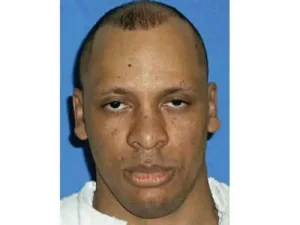Elroy Chester was executed by the State of Texas for the murder of Willie Ryman III
According to court documents Elroy Chester was molesting a teenage girl when he was caught by Willie Ryman III. Chester would fatally shoot him
Elroy Chester would be arrested, convicted and sentenced to death
Elroy Chester who would confess to five other murders would be executed by lethal injection on June 13 2013
Elroy Chester Photos

Elroy Chester FAQ
When Was Elroy Chester Executed
Elroy Chester was executed on June 13 2013
Elroy Chester Case
A serial killer who terrorized a southeastern Texas city 15 years ago was executed Wednesday for the murder of a decorated firefighter.
Elroy Chester, who confessed to four other slayings in the Port Arthur area during a six month crime spree, fatally shot Willie Ryman III in February 1998. Wednesday night before the lethal injection was carried out, Chester told the victim’s family not to hate him.
“I just want to say I don’t want you to have hate in your heart for me because I took your loved one,” Chester said. “I know it doesn’t mean anything. I told the truth because I feel like you should know who killed your loved one.”
Chester said he “wasn’t a bad man” and apologized to Ryman’s family before confessing to the murders one more time.
“For me live your life but don’t hate me,” he said. “I’m sorry for taking your loved ones. … A lot of people say I didn’t commit those murders, (but) I really did.”
Chester then told the warden he was ready for the execution to continue. He began breathing heavily and yawned before losing consciousness. He was pronounced dead at 7:04 p.m., 27 minutes after the lethal dose of pentobarbital was administered.
Chester, who is the seventh convicted killer to be put to death in Texas this year, had broken into the home of Ryman’s sister, Kim Chiasson, where her two teenage daughters were staying by themselves. He sexually assaulted the girls and Ryman surprised Chester when the 38-year-old firefighter stopped by to check on his nieces.
Chester, who was on probation at the time, was arrested soon after and subsequently pleaded guilty to the murder. DNA evidence tied him to the rapes. Ballistics tests matched his gun to the slayings of Ryman and four others; the gun was stolen in one of 25 burglaries in Port Arthur attributed to Chester.
He also confessed to killing 78-year-old John Henry Sepeda and Etta Mae Stallings, 87, during burglaries. He told police he stalked Cheryl DeLeon, 40, then fatally beat her with his gun as she arrived home from work. And he admitted to shooting his 35-year-old brother-in-law, Albert Bolden Jr., in the head.
Chiasson wanted to thank everyone for their support throughout the entire ordeal, especially a group of firefighters and law enforcement officers who worked along side Ryman and were present Wednesday.
She said that she “would not say” Chester’s execution “brings closure.” Instead she wanted to pass along a message to the family of Chester’s other victims.
“Justice has been done,” she added. “His reign of terror is over.”
The execution was carried out after the U.S. Supreme Court rejected a last-ditch appeal from Chester’s attorneys that focused on the conduct of a judge on the 5th U.S. Circuit Court of Appeals who ruled earlier in Chester’s case.
Judge Edith Jones was in a 2-1 majority two years ago that determined Chester was not mentally impaired and was therefore eligible for execution. Chester’s attorneys argued Jones subsequently displayed bias against Chester when she discussed his case during a February lecture on the death penalty at the University of Pennsylvania law school.
Jones’ remarks in February were not recorded, but attorneys for Chester obtained affidavits from several people who attended and backed an account from a lawyer who described Jones’ “outrage and incredulity” that Chester and others would raise mental impairment claims in their appeals. Attorney Susan Orlansky said the comments “infected” Jones’ judgment and called her impartiality into question.
Chester’s attorneys requested a reprieve to give new judges on the case time to study it and the allegations against Jones. They did not contest his guilt.
When a new 5th Circuit panel reviewing the arguments Wednesday said it perceived “no injustice, nor any incorrectness,” Chester’s lawyers took their case to the Supreme Court.







